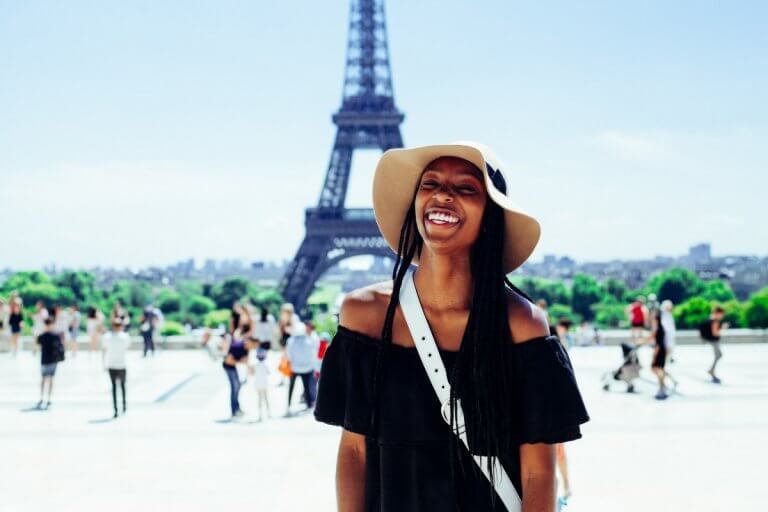
World Cup team line-ups are usually subject to analysis about positions, skills and compatibility of players. In 2018, however, France’s team made headlines about the very serious issue of French national identity.
Talk show host Trevor Noah dedicated a segment entitled “Did Africa just win the World Cup?” showing a photo of 11 French players, five of whom are black. “Basically, France is Africa’s back-up team,” he continues. “Once Senegal and Nigeria got knocked out, that’s who we root for.” Some, like French envoy to the US Gérard Araud, condemned Noah’s comments. Others, like Venezuelan President Nicolas Maduro agreed with him.
At the heart of the debate was France and what being French is all about.
The European country has no shortage of history, politics, culture and the arts. It’s where the French Revolution, arguably the most important period in modern European history, took place. The French language is the international language of diplomacy and the sporting world (a French investment bank study in 2014 suggested it could be the most spoken language of the world by 2050, too). Fashion, film and fine arts call France its capital.
To major in French studies, then, is to gain a qualification with significance and versatility in the world today.
I stand with @TrevorNoah. France’s World Cup victory was a win for France, Africa, multiculturalism and hyphenated identities.
All of the above. In 1998 and 2018. pic.twitter.com/APi8Ls2RfT
— Khaled Beydoun (@KhaledBeydoun) July 21, 2018
These programmes typically explore the political, social, historical, literary and cultural heritage of France and other Francophone nations. This is then complemented with linguistic skills, both oral and written. Together, students gain both communication skills and sufficient knowledge of the country, enhancing access to careers in international relations as well as development studies, business, science and the arts.
While the technicalities of the French language usually take centre stage in this field of study, it will not be the all-encompassing product. Will Clegg, a French Studies graduate from the University of Birmingham said, as reported by WhatUni:
“A lot of people think that a language degree is all about grammar and vocab, but there is so much more to it than that. Through the course, I learnt about French history, politics, literature, films and more. What you come out with is not just an understanding of a language, but an understanding of a country, its culture and its people.”
For example, the University of Manchester’s four-year BA in French Studies begins with three units in intensive language tuition in spoken and written French, two units in French Culture and Identity in Modern France and a French Project, where students write commentaries and essays on texts chosen from a prescribed list.
Year Two dives deeper into electives like French Cinema, Temptations of the Tragic: Love and Death in French Literature, and Making of the Modern Mind: European Intellectual History in a Global Context, to name a few.
Year Three is its study abroad component (which is quite common at other universities offering similar courses), followed by Year Four, which caps off the degree with a mandatory component in the French language as well as electives like The Cinema of Michael Haneke, Remembering the Occupation: Vichy Then, Vichy Now or Protest Music in France.

You’ll be able to read Le Figaro, too. Source: Shutterstock
In terms of assessments, there will be a mixture of written and oral examinations, presentations and coursework (which may include library research, linguistic fieldwork, data collection or web-based research).
Institutions, like Rice University, which provides an Honours track, gives senior students the opportunity to develop individual research projects culminating in the Honours thesis.
A semester or year abroad in a country with the studied foreign language and culture is a common component in language studies. Spending time in France or another Francophone country is a good way for French Studies students to put the skills and knowledge gained at university to use.
For example, in the French Studies programme at the University of Nottingham, the year abroad is spent in France or a Francophone country either in a programme at another institution, working as an assistant in a school or in a work placement.
Clegg’s journey as a French Studies student took him to St Tropez, where he lived, worked and met some amazing Francophones, not just from France but from around the world.
“I have become a generally more intelligent and cultured person,” he said.
And with all gained and learned under this degree, you’ll be more than equipped to explain what the French team line-up has got to do with its culture and identity by the time the next World Cup rolls around.
Liked this? Then you’ll love…
11 countries Brits can study in for free
Report: Humanities students among happiest and most job-fulfilled







